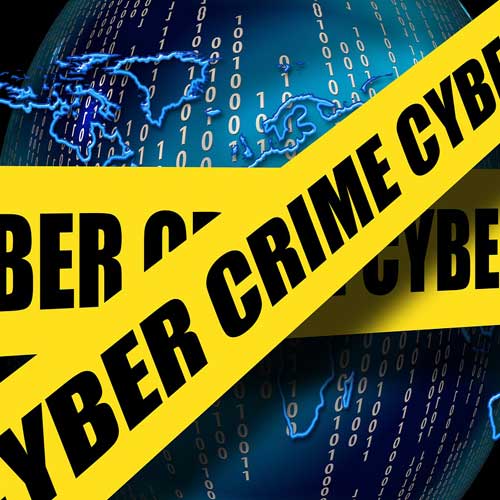If you believe a cyber incident is an imminent threat to life or of a criminal nature, please contact your local police services (911) or the RCMP. We encourage all victims to report cybercrime activities to law enforcement.
The term “cybercrime” refers to internet scams with reference to malware, hacking, auction fraud and assorted activity of this nature.
Did you know? Studies have found that 70% of people experiencing cybercrime have never reported it and of those 45% indicated they were unsure of whom to report the crime.
Protecting yourself from cybercrime
With all of the malicious programs out there, it’s important that you understand some of the things you can do to keep your computer protected:
- Use virus protection software. Anti-virus software recognizes and protects your computer against most known viruses. However, attackers are continually writing new viruses, so it is important to keep your anti-virus software current. Contact EagleRock Computer for a subscription.
- Keep your computer software current. Install software patches and updates so that attackers can’t take advantage of known problems or vulnerabilities. You should also consider allowing automatic software updates. Contact EagleRock Computer for managed updates
- Use caution with email attachments and items requiring downloading.
- Install a firewall, which may be able block malicious traffic before it can enter your computer. Some operating systems actually include a firewall, but you need to make sure it is enabled.
- Set your web browser security level to Medium or High.
- Be cautious when using Peer-to-Peer software.
- Spyware is a common source of viruses, but you can minimize the number of infections by using a legitimate program that identifies and removes spyware.
- Change your passwords on a regular basis and make them hard to guess by using numbers and special characters. This includes passwords for web sites that may have been cached in your browser.
Reporting cybercrime
Online sexual exploitation of children
must be immediately reported to your local Police Service. Call 9-1-1 for any crimes in progress or life exigent circumstances or your local Police Service non-emergency line. You may also report crimes of this nature anonymously to the Canadian Centre for Child Protection.
Online financial crime
- File a complaint with your local Police Service and obtain a police case number.
- Contact your bank/credit card company if any of your financial information was used. Give your police case number to your bank/credit card company to place on file.
- Provide the police case number and have fraud alerts placed on your credit reports to either of the two credit bureau companies, Equifax (1 800 465-7166) or TransUnion in Canada.
- Report the incident to the Canadian Anti-Fraud Centre or 1-888-495-8501.
Important: Avoid conducting banking business or entering personal information on public computers such as computers found in libraries or cybercafes. Public computers could contain keyloggers.
Ransomware, other cybercrime, fraud and scams
Cybercrime includes criminal activities where the Internet and digital technologies, such as computers and mobile phones, are key to committing the crime. Examples include ransomware, data breaches and other cyber intrusions. Many types of fraud are also committed online, such as phishing and online scams.
The RCMP recommends any victim of a cybercrime, fraud or scam contact their local police. It is also recommended, whether you are a victim or not, to report using the National Cybercrime and Fraud Reporting System.
Spam
You can report unsolicited emails and text messages to the Spam Reporting Centre. For more information and to report spam visit Canada’s anti-spam legislation website.
Social media
To report abusive behaviour, such as harassment, cyberbullying, threats, and impersonation, or other incidents that occur on social media, contact the social media provider directly through their help centre.
Online threats related to extremism, terrorism, espionage, or serious violence
Please report to the Cyber Centre as an Individual or on behalf of an Organization.
**Information from Canadian Centre for Cyber Security
